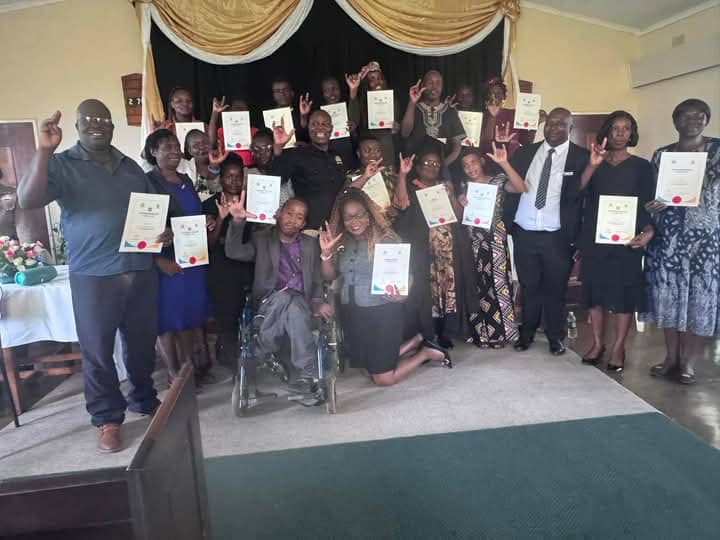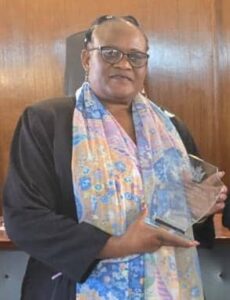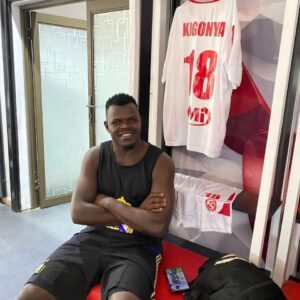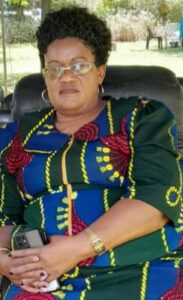By Tongai Mashonga
Sunrise Sign Langauge Academy (SSLA) recenlty held a one week sign langauge training plus a graduatiin ceremony in Kwekwe.
Forty five graduands graduated after the training and recieved certificates of competency and basic knowledge, marking a significant milestone in the organisation’s mission in promoting communication and inclusivity for the deaf community.
The training program, was attended by a diverse group of participants, aimed to equip them with the skills and knowledge neccessary to communicate effectively with the deaf.
Amongst the participants was Memory Chinwada, a nurse (midwife) by profession, who joined the training in order to improve her communication with the deaf patients at work.
“At work we have the deaf community seeking medical services everyday and I realized that I needed to improve my communication skills to better serve them.
“We encountered a difficult moment in the maternity ward where a deaf patient was in labour giving birth. We had to call her mother to come and assist to communicate with her.
“This training has been invaluable and I am confident that I can now communicate more effectively with the deaf community at work and even at church. Government must make sign langauge learning mandatory in schools, tertiary colleges and universities,” said Chinwada.
The graduation ceremony was attended by Kwekwe Mayor, Albert Zinhanga who delivered a keynote speech emphasizing the importance of inclusivity and accessibility for the deaf community.
“As a city, we recognize the importance of promoting inclusivity and accessebility for all members of our community, including the deaf,” said Mayor Zinhanga.
“Sunrise Sign Langauge Academy is doing vital work in this area and we are proud to support their efforts. To those who graduated today let’s go back to the community and make a difference such people could see the importance of learning sign langauge and be ambassadors.
“Chairman feel free to train as many people in Kwekwe. If time permits I would like to invite you chairman first, to come and interpret during our full council meetings. This will help councillors and management to appreciate sign langauge. My office is open to you feel free to come.”
Five participants received certificates of competency while 40 recieved basic training certificates.
“I’m thrilled to have recieved my certificate of competency in sign langauge training,” said Agatha Chipatisi from Gweru.
“The training has been challenging but rewarding and I’m excited to apply my new skills in my daily life as a nutritionist where I work with deaf people on health matters.
“I started this training in Gweru where I only attended the last two days so I had to come here in Kwekwe and completed the required five day training sessions”.
SSLA Founder and chairman Douglas Mapeta expressed his pride and gratitude to the participants, trainers and guest.
“We are proud of what we have achieved, and we are grateful for the support of our partners and stakeholders. We will continue to work tirelessly to promote communication and inclusivity for the deaf community.
Mapeta narrated how he started SSLA.
“The journey started in 2012 when my son was burnt with boiling water and was admitted at a hospital for nearly four weeks. During my visit to the hospital I saw doctors and nurses having a challenge in communicating with the deaf, it touched my heart despite my own son’s challenges who later passed on.
“As a way to cope up with grief, I said I want to study sign langauge. I did sign langauge studies inside and outside the country. It took me two years to finally register SSLA as an institution. I’m here to serve the nation.
“We are here in Kwekwe on that vision, helping out the nation and running with the President’s mantra ‘leaving no one and no place behind’. In the coming weeks SSLA is targeting to train 180 nurses at hospitals in Harare and Gweru Provincial Hospital,” said Mapeta.
SSLA empowers communitties through sign langauge training and disability empowerment. The training was attended by different personalities who work in the education sector, hospitals, prisons, councils, people from different religious sectors and the community.





